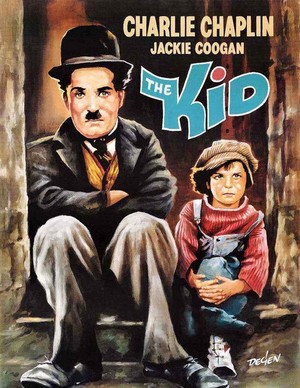
The Kid (1921)
Het Jochie

Raiting: ![]() 8,3 /10
8,3 /10
Genre: Drama
Director: Charles Chaplin
Stars: Charles Chaplin, Edna Purviance and Jackie Coogan
Country: United States
Release date: 21 January 1921
Length: 68 minutes / 50 minutes (re-release 1971)


Raiting: ![]() 8,3 /10
8,3 /10
Genre: Drama
Director: Charles Chaplin
Stars: Charles Chaplin, Edna Purviance and Jackie Coogan
Country: United States
Release date: 21 January 1921
Length: 68 minutes / 50 minutes (re-release 1971)